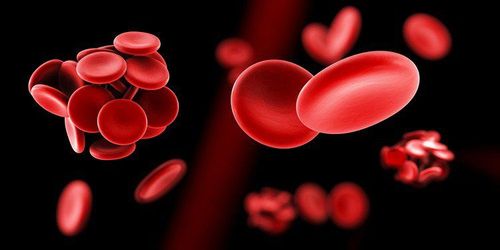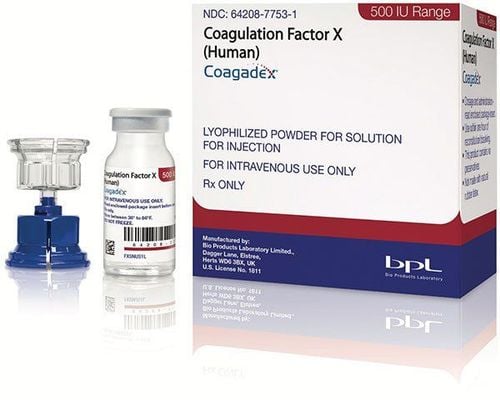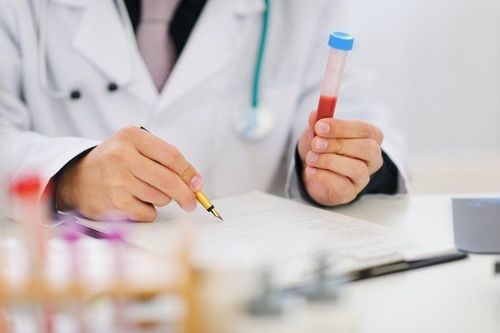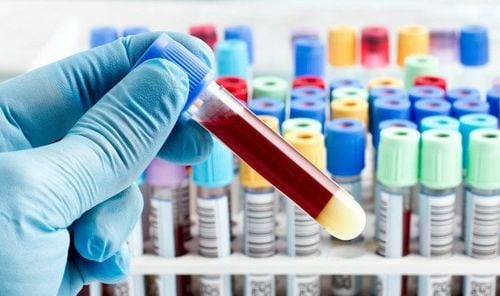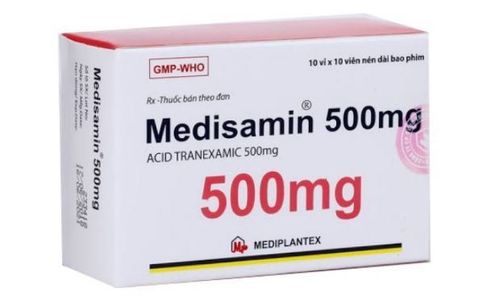This is an automatically translated article.
The article was professionally consulted by Specialist Doctor I Do Van Manh - Emergency Resuscitation Doctor - Emergency Resuscitation Department - Vinmec Ha Long International HospitalCoagulation is the process of protecting the body from excessive bleeding during an injury. Your doctor will know your risk of heavy bleeding or other risks such as stroke or heart attack when testing blood clotting. So what is coagulation and when should a coagulation test be done? The following article will help us answer the above questions.
1. What is coagulation?
Coagulation plays an important role in hemostasis, which is the complex process that creates blood clots.
Immediately after an injury that damages the vascular endothelium, the coagulation response is activated. Initial hemostasis occurs when platelets form a stopper at the wound site. The coagulation factors in the plasma respond to a chain reaction to form fibrils that strengthen the platelet plug, which is secondary hemostasis.
Blood is stopped by the lesion covered by a clot containing platelets and fibrin, when the blood vessel wall is damaged. Blood clotting disorders can cause blood clots or increase the risk of bleeding.

2. When to do a coagulation test?
Performing a blood clotting test will help your doctor diagnose and evaluate how well your body is able to clot and how long this process will take.
You will be ordered by a doctor for a blood clotting test in some of the following cases:
You have unstoppable bleeding or unusual bruises on your body; Test to check if the dose of Warfarin you are taking is appropriate; Blood clotting is indispensable for the participation of vitamin K, so do a blood clotting test to check if you have a vitamin K deficiency; Before performing surgery, your doctor will assign you to perform a blood clotting test, whether you are eligible to perform surgery or not; The liver is the place to produce clotting factors, so to check the liver's activity, it is necessary to perform a coagulation test; Check if the body is making too much blood clot; Accurately diagnose blood clotting disorders, the degree of clotting disorders as well as the progression of blood clotting disorders that the patient has to help the doctor determine the correct treatment direction for each subject; The test is also indicated for subjects who are not taking anticoagulants but still have some signs of bleeding disorders such as nosebleeds, bloody stools or urine, bleeding gums, bleeding in joints. , impaired vision... Coagulation tests play a very important role in the diagnosis of blood clotting abnormalities. Based on the visible signs or symptoms alone, it is impossible to make an accurate conclusion about the blood clotting disorder. This will directly affect the direction of disease treatment as well as the patient's treatment outcome.
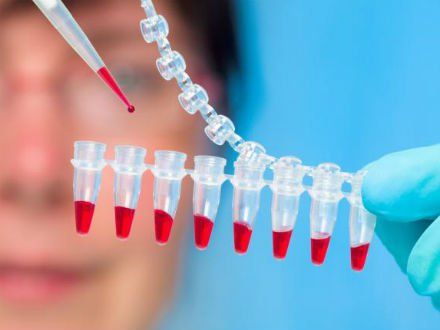
3. Factors affecting coagulation test results
The following are some factors that affect coagulation test results:Some proteins are temperature sensitive, and the concentration of samples will decrease if kept at room temperature; Women who are pregnant or using oral contraceptives have increased levels of clotting factors, especially anti-hemophilia A (VIII) and anti-hemophilia B (IX); When under stress or inflammation, blood clotting factors can increase, leading to erroneous test results. To monitor and accurately diagnose blood clotting, it is necessary to perform a coagulation test. At the same time, the blood clotting test results help the doctor to have the right and accurate treatment for each patient as well as the abnormality in the blood clotting process that you may encounter, which cannot make a judgment. signs or symptoms of the disease.
Please dial HOTLINE for more information or register for an appointment HERE. Download MyVinmec app to make appointments faster and to manage your bookings easily.





